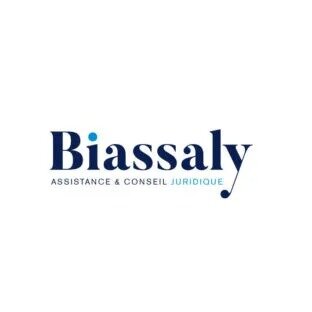Best Hiring & Firing Lawyers in Libreville
Share your needs with us, get contacted by law firms.
Free. Takes 2 min.
List of the best lawyers in Libreville, Gabon
About Hiring & Firing Law in Libreville, Gabon
Libreville, the capital city of Gabon, has a unique set of labor laws governing the hiring and firing processes. These laws are designed to balance the interests of employers and employees, ensuring fair treatment and compliance with national standards. Gabonese law outlines specific procedures for employment contracts, terminations, and dispute resolutions, making it crucial for both employers and employees to be well-informed about their legal rights and obligations.
Why You May Need a Lawyer
Legal advice may be necessary in a variety of situations related to hiring and firing in Libreville. Employers might seek legal assistance when drafting employment contracts, handling layoffs, or navigating disputes with employees. Employees, on the other hand, could require legal support if they believe they have been unfairly dismissed, need clarity on their contractual terms, or face issues such as discrimination or unpaid wages. Understanding the nuances of Gabonese labor laws can help protect one's rights and ensure compliance with local regulations.
Local Laws Overview
Gabonese labor law is primarily governed by the Labor Code, which sets the framework for employment contracts, worker protection, and dispute resolution. Key aspects of the law relevant to hiring and firing include:
- Employment Contracts: Contracts can be term or indefinite, and must clearly stipulate terms of employment.
- Termination Procedures: Employers are required to follow specific protocols when terminating an employee to prevent unlawful dismissal.
- Severance Pay: Certain conditions trigger the need for providing severance, varying by contract type and dismissal reasons.
- Worker Representation: Legal frameworks dictate the role of unions and workers' councils in protecting employee rights.
- Dispute Resolution: Labor disputes can be addressed through the labor courts or mediation, offering avenues for equitable settlements.
Frequently Asked Questions
What is the standard process for hiring new employees in Libreville?
Employers in Libreville must draft an employment contract that details job responsibilities, salary, and terms of employment. This contract should comply with the Labor Code's requirements.
Can an employer dismiss an employee without a valid reason?
No, Gabonese labor law requires employers to provide valid reasons for termination and comply with specified procedures to ensure fairness and legality.
How is severance pay determined in Gabon?
Severance pay is determined based on the employee's length of service and specific terms outlined in the employment contract or as mandated by law.
Are probationary periods allowed in employment contracts?
Yes, employment contracts in Libreville may include probationary periods, but they must be clearly stated and comply with legal guidelines for duration and conditions.
What legal protections exist against unfair dismissal?
Employees are protected by laws that require just cause for termination and the right to challenge unfair dismissal through legal channels.
Can employees form unions in Gabon?
Yes, Gabonese law permits the formation of unions and workers' councils, which play a role in representing and safeguarding workers' rights.
Are there specific regulations for foreign workers?
Yes, foreign workers must obtain proper work permits and visas, and their employment must comply with Gabonese labor laws.
How can labor disputes be resolved?
Disputes can be resolved through mediation, arbitration, or by taking the matter to labor courts, providing multiple pathways for resolution.
What is the role of the labor inspectorate in Libreville?
The labor inspectorate ensures compliance with labor laws, provides guidance, and can intervene in disputes or issues related to hiring and firing.
How often can employment contracts be renewed?
Term contracts can be renewed, but they must still comply with labor regulations concerning maximum duration and purpose to prevent abuse.
Additional Resources
For those seeking further assistance or information on hiring and firing laws in Libreville, the following resources may be helpful:
- Ministry of Labor, Employment, and Social Protection
- Local labor courts
- Chambers of Commerce in Libreville
- Professional legal associations and labor law specialists
- Worker unions and employer associations
Next Steps
If you require legal assistance in hiring and firing matters, it is advisable to consult with a qualified lawyer who specializes in Gabonese labor law. Start by gathering any pertinent documents related to your employment or business, prepare a list of questions or concerns, and schedule a consultation with a legal expert. Taking these steps can help you address any issues effectively and ensure compliance with local labor laws in Libreville.
Lawzana helps you find the best lawyers and law firms in Libreville through a curated and pre-screened list of qualified legal professionals. Our platform offers rankings and detailed profiles of attorneys and law firms, allowing you to compare based on practice areas, including Hiring & Firing, experience, and client feedback.
Each profile includes a description of the firm's areas of practice, client reviews, team members and partners, year of establishment, spoken languages, office locations, contact information, social media presence, and any published articles or resources. Most firms on our platform speak English and are experienced in both local and international legal matters.
Get a quote from top-rated law firms in Libreville, Gabon — quickly, securely, and without unnecessary hassle.
Disclaimer:
The information provided on this page is for general informational purposes only and does not constitute legal advice. While we strive to ensure the accuracy and relevance of the content, legal information may change over time, and interpretations of the law can vary. You should always consult with a qualified legal professional for advice specific to your situation.
We disclaim all liability for actions taken or not taken based on the content of this page. If you believe any information is incorrect or outdated, please contact us, and we will review and update it where appropriate.









